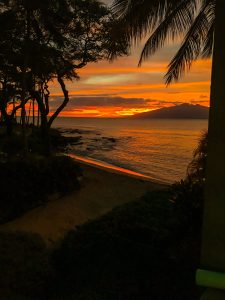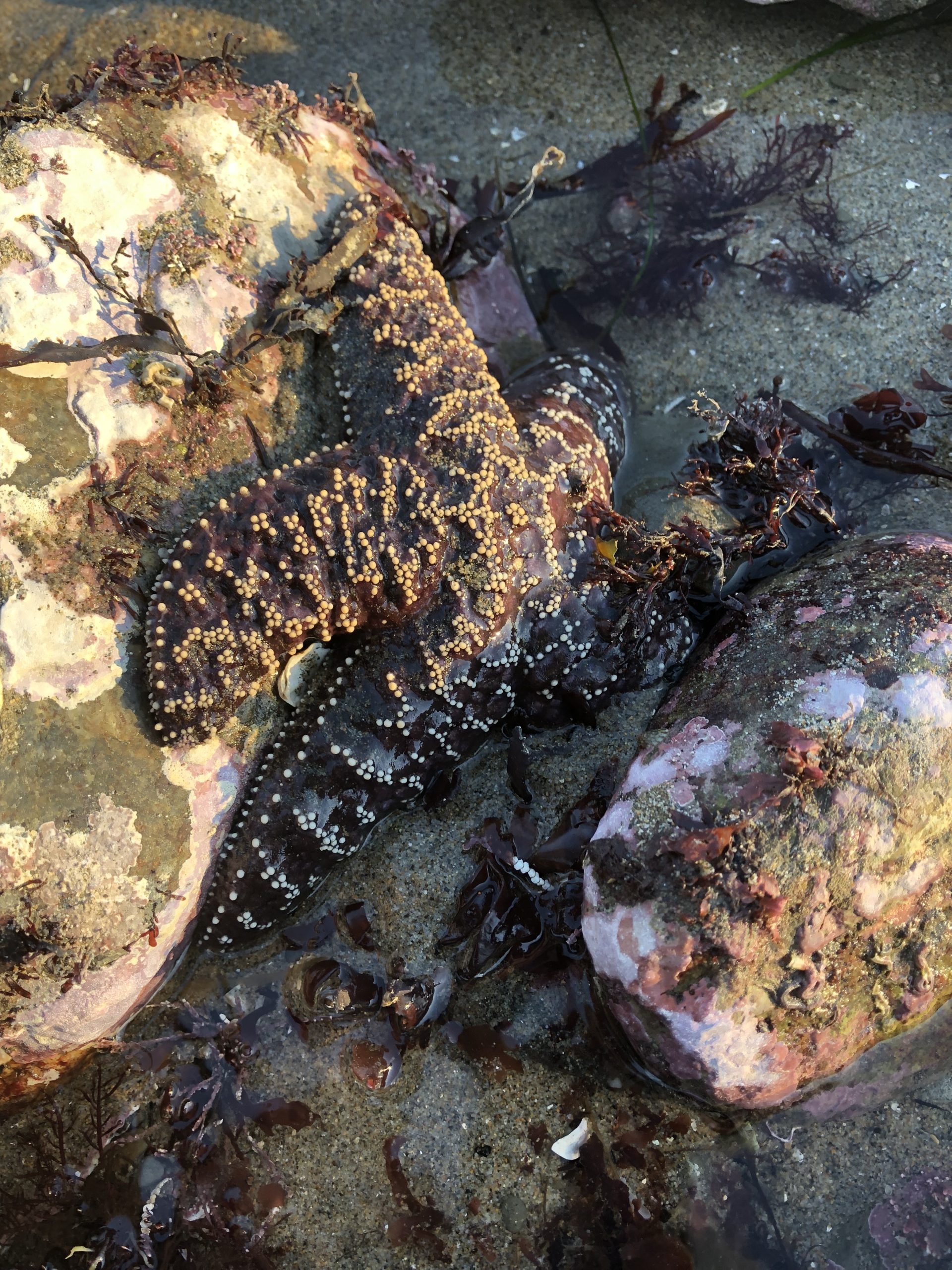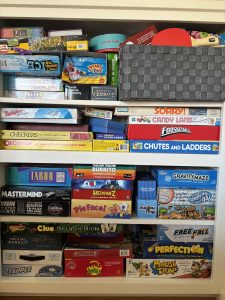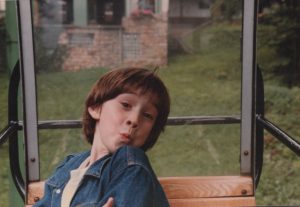
Image by Laura Wecksler. Napili Sunset, Maui, HI.
As I reflect on themes that the rise of Artificial Intelligence and Virtual Reality bring up, I can’t help but recall two books written by two of my favorite authors: Cloud Cuckoo Land, by Anthony Doerr and Klara and the Sun, by Kazuo Ishiguro. Both of these stories suppose a technology that has become so ingrained with everyday human existence that it blurs the line, or re-writes, what “real” is.
One storyline in Doerr’s Cuckoo Land (a sort-of spoiler alert),  is set in a dystopian, post apocalyptic world, where one of the main character’s only experience with Earth is through a VR headset/treadmill system located in her space capsule’s library. She is able to walk through and explore every square inch of Earth through this immersive visual representation, but in a still, pre-coded photographed and mapped form.
is set in a dystopian, post apocalyptic world, where one of the main character’s only experience with Earth is through a VR headset/treadmill system located in her space capsule’s library. She is able to walk through and explore every square inch of Earth through this immersive visual representation, but in a still, pre-coded photographed and mapped form.
Ishiguro’s Klara (another sort-of spoiler) is told through the eyes of a virtual assistant that takes “human” form, a kind of My Buddy doll that can walk, talk and learn human behaviors from observation.  They are called “Artificial Friends,” are marketed toward adolescents to boost self esteem and there are stores that sell them, where they wait anxiously to be taken home. The story follows the arc of humans’ need for these “AFs” and makes you surprised to feel empathy and sadness for what is, essentially, a robot.
They are called “Artificial Friends,” are marketed toward adolescents to boost self esteem and there are stores that sell them, where they wait anxiously to be taken home. The story follows the arc of humans’ need for these “AFs” and makes you surprised to feel empathy and sadness for what is, essentially, a robot.
Both of these novels represent the human experience with emergent technology–their reliance and ultimate disappointment with its capabilities (or restrictions, as it were). Michael Stephens, in “Flash Briefing” (Wholehearted Librarianship, 2019), explores the push and pull between “how much is too much?” voice assistance when he asks, “Are Alexa and Siri a voice-activated path to the world brain?” More than once, I’ve had conversations where I desperately wrack my brain to try to come up with the answer to whatever trivia question before Siri does. Which one is better? Is Virtual an apt substitute for Real?
I think we’d all agree that’s a resounding no, but an ally? Sure. Just don’t listen to me all the time. ; ) Cue Forbes’ article, “Is Virtual Reality the Future of Field Trips?”  Mike McShane (2018) explores the role VR plays in helping provide access for kids whose schools might not be able to take them to cultural institutions such as art museums. McShane argues that while Virtual Reality platforms “can take students to places that they could never go in person” (like space), it also can’t replace the good ol’ fashioned human experience In Real Life. McShane cites research that describes some of the benefits children gain from first-hand experience in an art museum, such as “gains in critical thinking, historical empathy, tolerance and interest in visiting museums again,” especially in those who come from “disadvantaged backgrounds.” What he suggests is that VR should be used as an augment to an already enriching setting.
Mike McShane (2018) explores the role VR plays in helping provide access for kids whose schools might not be able to take them to cultural institutions such as art museums. McShane argues that while Virtual Reality platforms “can take students to places that they could never go in person” (like space), it also can’t replace the good ol’ fashioned human experience In Real Life. McShane cites research that describes some of the benefits children gain from first-hand experience in an art museum, such as “gains in critical thinking, historical empathy, tolerance and interest in visiting museums again,” especially in those who come from “disadvantaged backgrounds.” What he suggests is that VR should be used as an augment to an already enriching setting.
As the host wildly gesticulates in the “Holo Lens 2 AR Headset” video,  “instinctual interaction” with VR can provide exponential possibility for design, organization and connection:
“instinctual interaction” with VR can provide exponential possibility for design, organization and connection:
“By bringing people together from all over the world to collaborate in the same virtual room, we’re overcoming a natural barrier to our collective success. That’s people’s desire for direct face-to-face interaction when building commitment and trust.”
I still think it’s like that episode from the Simpsons when the robots from Itchy & Scratchy Land accidentally get switched to the “kill” option.  Either way, I shouldn’t poo poo these advances so. Professor Stephens is right. “The online and the physical should cyclically complement each other. A balance between the two makes for a well-informed, capable library professional.” (2019).
Either way, I shouldn’t poo poo these advances so. Professor Stephens is right. “The online and the physical should cyclically complement each other. A balance between the two makes for a well-informed, capable library professional.” (2019).
References
Doerr, A. (2022). Cloud cuckoo land. Scribner.
Ishiguro, K. (2021). Klara and the sun. Vintage International.
McShane, M. (2018, June 13). Is virtual reality the future of field trips? Forbes. https://www.forbes.com/sites/mikemcshane/2018/06/13/is-virtual-reality-the-future-of-field-trips/?sh=23fa548c1809
oug [sic]. (2018, January 27). Killer robots. [Video]. YouTube. https://www.youtube.com/watch?v=pWapBYWqDo0&list=PLXpl2RGfemi7y99_byHNNjuNtD-CqJuK4
Stephens, M. (2019). Wholehearted librarianship. ALA Editions.
UploadVR. (2019, February 24). HoloLens 2 AR Headset: On Stage Live Demonstration. [Video]. YouTube. https://www.youtube.com/watch?v=uIHPPtPBgHk&t=659s


